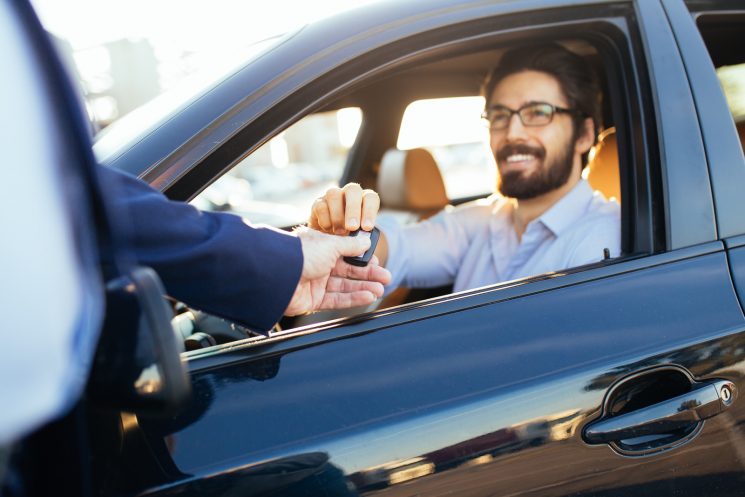Here are some important facts you need to know about car ownership:
- The average length of car ownership is decreasing.
- The number of people buying brand new cars is rising.
- The number of people leasing instead of buying is also growing.
Why are these facts so important?
It’s because they point us towards a shift in the very meaning behind car ownership.
Previous decades saw cars as very functional machines, vehicles that took you from A to B. This made sense for the era. Cars used to be simple in everything from design to function. They used to be practical with no frills — except for a few high-end exceptions.
But this is no longer the case. Even standard models and budget cars come with a wealth of features from cruise controls to entertainment systems. Exterior design has taken on a new meaning, and more environmentally-friendly attitudes have paved the way for a rise in greener technology.
The immediate result of this shift is that car ownership length is decreasing. We’re no longer satisfied with driving the same model for over a decade. Car developments drive us to upgrade more often in favour of newer models that have a myriad of features once only known to the realms of science-fiction. We don’t want to just own a car. We want to own a car with all the latest gadgets, safety features and design options.
This desire to drive cars that goes above and beyond basic functionality pushes more and more people to brand new cars. As with smartphones, buy an older car and you’re buying into dated technology. In our modern culture, where we’re obsessed with state-of-the-art innovations, having old technology is quite the unappealing prospect. Therefore, in an industry where cars have gone from being mechanical to technological innovations, this means new has become best.
Such interest in new cars has resulted in a rise of not only purchases of brand new vehicles, but also a move towards leasing over ownership. The number of leased vehicles is going up and up as the number of cars owned outright falls.
But why lease a car instead of buying one?
There is a common misconception surrounding car leasing: that it’s an alternative for people who can’t afford to pay for cars outright. According to this idea, instead of paying the full amount upfront, car leasers pay monthly because it’s the only way to manage the costs. The myth suggests car leasing is more expensive long term but means you don’t need to save up to get the vehicle now.
This myth can easily be busted, simply by looking at the figures involved in car ownership.
Let’s first start by noting how leasing is different from buying a car on finance. When you buy a car on finance, you take out a loan for the vehicle and pay it off in instalments. Finance deals have interest applied to them, which means they’ll never be cheaper than an outright payment.
But that isn’t what leasing is. Leasing is effectively a long-term rental. You don’t take out a loan or finance deal to buy the car. Somebody else already owns the vehicle— in simple terms, you just pay monthly fees to use it for a set period.
But how does this make leasing cheaper than ownership?
Depreciation is a major factor in car value. Buying a new car outright sees it lose 60% of its value within three years, with depreciation continuing to make large dents in the vehicles resale value annually for years to follow.
The costs of depreciation are almost always higher than the annual fees associated with leasing, to the tune of thousands. It is only in rare cases that the cost of depreciation would be lower than the cost of leasing. For example, on a £40,000 leased vehicle, you could expect to pay annual fees for leasing of around £5000. Conversely, you’d be losing around £8000 in depreciation if you bought the car yourself.
Eventually, all cars bought outright become more financially viable than leasing — but only if you continue to own the vehicle for enough time to balance out the cost of depreciation versus the cost of leasing. While the £5000 lease fee will remain the same year-on-year, you can’t keep losing £8000 a year on a car, or it would be worth negative money. Over time, depreciation starts to plateau until the car retains a long-term value. At this point, upon sale, you’ll have saved money compared to leasing, essentially by waiting out the depreciation factor.
To do that, however, you need to own the car for many years — we’re talking seven to10 years.
The process of saving money on buying over leasing only works if you’re planning on owning the car for many years, which as we’ve already discussed, many people are not. Instead, the primary focus of obtaining a new vehicle is to enjoy the latest developments it offers, then upgrade within a short time frame — around five years maximum, with many people looking at two to three years of ownership.
This situation is where leasing becomes more financially viable. If your goal is to own a new car as you would the latest phone, leasing makes for a much sounder investment. You’ll be part of the latest car revolution — taking advantage of everything from electric motors to autonomous driving — all while you save money through avoiding the massive costs of early depreciation.
The last question you might have is: how does this make sense? Logically, the lease company isn’t making any money because they are then liable to sell on the depreciated car. Think of it this way:
- The original price of the car is £40,000
- You pay £15000 over three years to lease the vehicle
- While you are using the vehicle, depreciation means it loses £24000 in value
- When you return the car, the lease company then sells it for the £16,000 market value
- Since you’ve paid them £15000, it appears the lease company is £9000 out of pocket.
How can you lease a car cheaper than buying one? The system works because car leasers make bulk orders from car manufacturers, which means they can acquire cars at lower costs that you can’t obtain as a one-off purchaser. They effectively buy the cars wholesale, allowing them to lease the cars at competitive rates.
It’s a win-win situation and one that leaves both parties with healthier finances.





